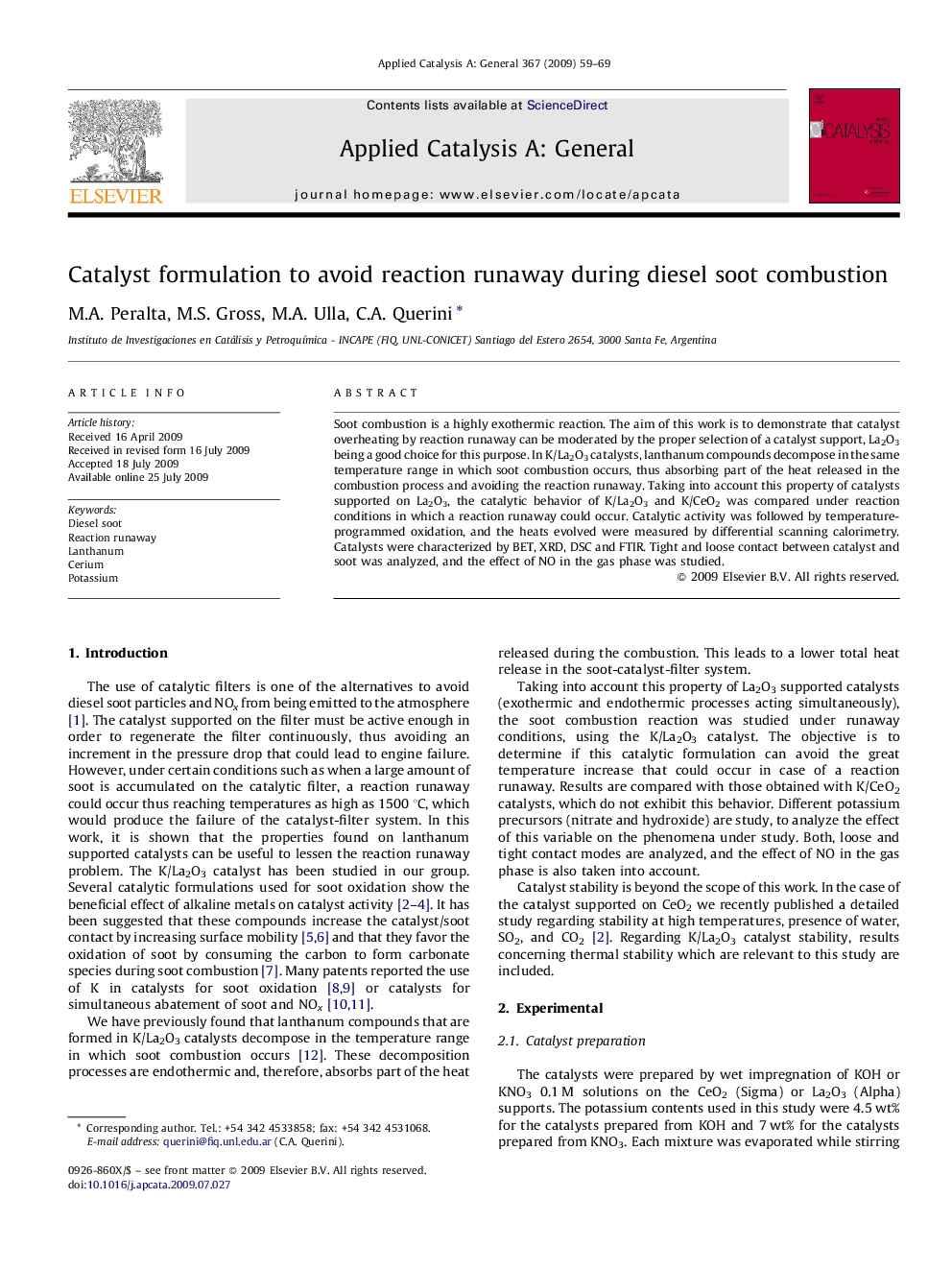| Article ID | Journal | Published Year | Pages | File Type |
|---|---|---|---|---|
| 42432 | Applied Catalysis A: General | 2009 | 11 Pages |
Soot combustion is a highly exothermic reaction. The aim of this work is to demonstrate that catalyst overheating by reaction runaway can be moderated by the proper selection of a catalyst support, La2O3 being a good choice for this purpose. In K/La2O3 catalysts, lanthanum compounds decompose in the same temperature range in which soot combustion occurs, thus absorbing part of the heat released in the combustion process and avoiding the reaction runaway. Taking into account this property of catalysts supported on La2O3, the catalytic behavior of K/La2O3 and K/CeO2 was compared under reaction conditions in which a reaction runaway could occur. Catalytic activity was followed by temperature-programmed oxidation, and the heats evolved were measured by differential scanning calorimetry. Catalysts were characterized by BET, XRD, DSC and FTIR. Tight and loose contact between catalyst and soot was analyzed, and the effect of NO in the gas phase was studied.
Graphical abstractDiesel soot oxidation is a highly exothermic reaction. The accumulation of soot in the filter might lead to an uncontrolled reaction, and consequently to high temperatures that can crack the monolith. Catalyst deposited on the filter can be designed in order to absorb a fraction of the heat release during combustion, thus dampening the runaway, and protecting the filter. In this work, we show that lanthanum oxide is a good candidate for this, since the La(OH)3 formed in the presence of wet air, decomposes above 300 °C, the same temperature range in which soot is catalytically oxidized.Figure optionsDownload full-size imageDownload as PowerPoint slide
